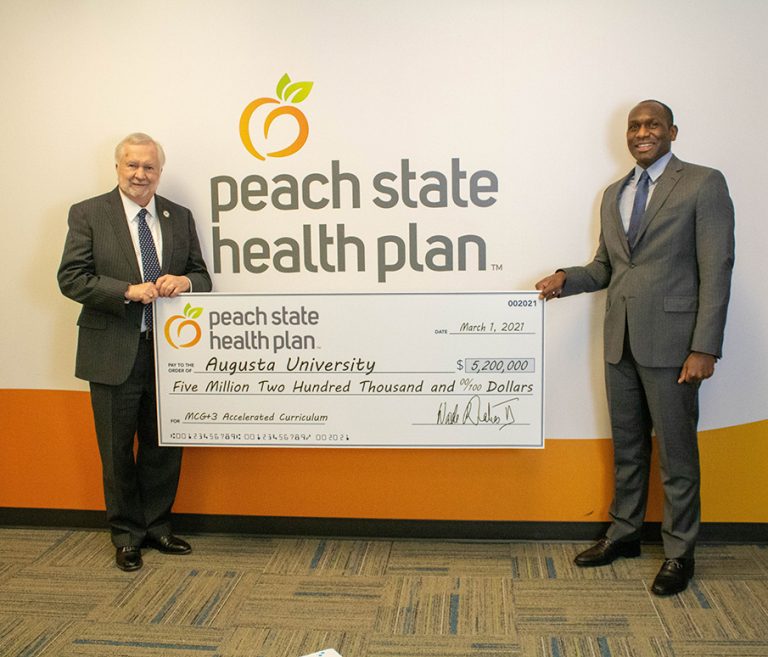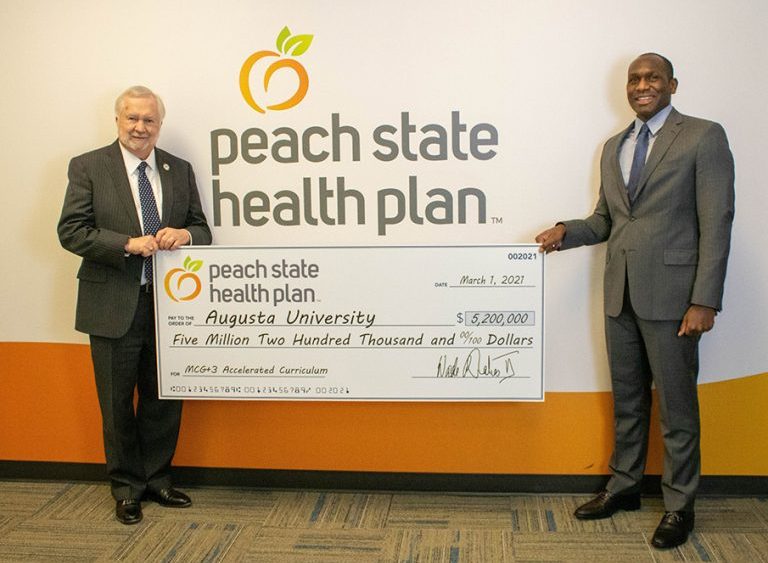
Peach State Health Plan (PSHP) and the Medical College of Georgia (MCG) at Augusta University announced an official partnership to address the state’s critical rural physician shortage, which is leaving thousands of Georgia families without access to consistent, quality, and affordable health care. PSHP will also present a $5.2 million grant to help fund MCG 3+, an accelerated medical school curriculum that has been developed to recruit, train, and place more primary care physicians in underserved communities around Georgia.
Georgia currently ranks among the 10 lowest states for many of the country’s most prevalent medical conditions, averaging some of the highest incidents of stroke, heart disease and cancer in the nation. Additionally, there are many underserved and rural areas of the state that lack access to primary care physicians and basic health care services.
Georgia’s physician shortage is a serious public health crisis. According to the Georgia Board of Health Care Workforce, 60 of the state’s 159 counties have no pediatrician; 76 are without an obstetrician or gynecologist; 18 have no family medicine physician; 32 with no internist; 74 do not have a general surgeon; and sadly, nine counties have no doctor at all. The trend may only get worse as the state’s population continues to age and more doctors, specifically family practitioners, transition into retirement.
The MCG 3+ program seeks to redesign the four-year core MD curriculum to three years to enable students to better tailor-make their fourth-year learning experience. The redesign provides a more efficient pathway into primary care for a percentage of students. The majority of students will spend the fourth year of medical school honing clinical and research skills or completing a dual degree.
The MCG 3+ Primary Care Pathway would see a percentage of students who commit to primary care practice in rural or underserved Georgia, graduate in three years and immediately enter a residency in Georgia in either emergency medicine, internal medicine, pediatrics, psychiatry, obstetrics and gynecology or general surgery. Depending on future funding, those students would receive a scholarship. Another option for students with the new curriculum will be to use their fourth year to earn a dual degree, like the university’s MD/MBA or MD/MPH. The final option would enable students to use their fourth year for advanced clinical training and/or research in their chosen future career specialty.
“As the state’s only academic public medical school, it is our duty to ensure that we have the physicians needed to keep Georgia healthy,” said MCG Dean Dr. David Hess. “The physician shortage, especially in rural and underserved areas, is a huge problem and will only worsen with time. Primary care physicians not only improve a community’s overall health by preventing and managing chronic conditions on an outpatient basis, but they also bring more jobs, attract new businesses, and strengthen economic health. By placing more of these physicians in underserved areas, we’ll be ensuring a healthy future for every corner of our state.”
“In October 2020, Peach State Health Plan launched the Office of Rural Health and Strategic Initiatives to develop programs and partnerships with organizations like Augusta University,” said Wade Rakes, CEO Peach State Health Plan. “By partnering with the Medical College of Georgia at Augusta University, we are doing our part to ensure that all Georgians have access to highly training physicians and quality health care.”
For all media inquiries, please contact Jennifer Scott.

